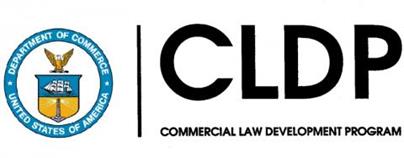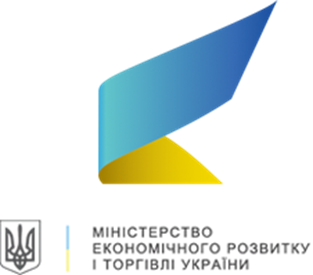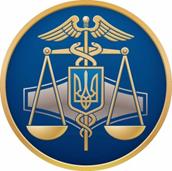Workshop on WTO TFA Agreement in Ukraine: Legislative and Institutional Impediments to Implementation



WTO TFA Agreement in Ukraine: Legislative and Institutional Impediments to Implementation
Ukraine
February 22–24, 2017
Workshop recommendations
The Workshop participants,
welcoming the entry into force of the World Trade Organization Trade Facilitation Agreement (WTO TFA);
recognizing the importance of the performance by Ukraine of its commitments both in legislation and in practice;
taking into consideration the crucial importance of post-clearance audit for the effective implementation of the WTO TFA provisions, including Ukraine’s Category A commitments;
wishing to improve Ukraine's rank on Ease of Doing Business – World Bank Index with respect to international trade;
as a result of joint discussions of the presentations and case studies have approved the following recommendations:
- On Lawmaking and Law Enforcement
- To request assistance of CLDP and EUBAM in the establishment of a working group tasked with harmonizing legislation of Ukraine in the area of post-clearance audit with that of the EU and with relevant provisions of the WTO Trade Facilitation Agreement. The first meeting should be held in the second half of March. The date and location of the future meetings will be determined as work proceeds.
- To draw attention of the working group to the following issues:
- definition of the concepts of post-clearance audit, post-customs control and of the appropriate procedures (Note – to take into account that Draft Law 4777 “On the Amendment of the Customs Code of Ukraine on Authorized Economic Operator and Simplification of Customs Formalities” defines post-customs control as follows “inspection of documents, the information on which was indicated in the customs declaration, on the basis of which the goods have been released or inspection of documents on the basis of which the goods have been released”);
- relation among the concepts of customs processing, customs clearance and release of goods;
- application of risk assessment in post clearance audit;
- issue of guarantees in post-clearance audit as well as in the context of managing the customs obligations in general;
- legal rules that allow for automatic decisions on the determination of the audited entity in post clearance audit;
- grounds for unscheduled "surprise" inspections in line with the best international practices;
- issues of offsetting the VAT refund against VAT debt; offsetting the VAT refund against debt with regard to other obligatory payments to the State Budget of Ukraine.
- In order to unify the application of the legal rules important to trade facilitation, to provide information to the employees of the State Fiscal Service of Ukraine regarding the practice of application of the relevant legal rules (valuation, classification, origin), including court decisions on complaints.
- To take notice of the remark by a representative of the Ministry of Economic Development and Trade of Ukraine that according to the draft resolution of the Cabinet of Ministers of Ukraine "On the Establishment of the International Trade Council under the Cabinet of Ministers of Ukraine", a working group on trade facilitation is to be set up within the framework of the International Trade Council (note - according to the said draft resolution, representatives of central executive bodies, other state bodies, representatives of the business community, experts and specialists on international trade, including foreign experts and specialists (by consent) may become pro bono members of the working group; The International Trade Council Secretariat (Ministry of Economic Development and Trade) forms proposals on the membership of the working group, which are approved by a vote in a meeting of the International Trade Council). .
- To use the workshop materials in the development of the draft national strategy (program) on post-clearance audit pursuant to the international commitments of Ukraine and in line with the international best practices.
- To use the experience of customs officials of the Lithuanian Republic in working with software and databases (for example, the RIKS system) in the future planning of the development of the relevant software and databases in Ukraine. To request support of such development from international assistance programs and organizations.
- To ask CLDP and EUBAM to consider the possibility of assisting in the organization of a visit by four representatives of the State Fiscal Service of Ukraine (with due regard to the gender equality principle) to one of the EU member countries with a view to studying the international best practices of post-clearance audit.
IІ. On Further Professional Development of Post-Clearance Specialists
- To request assistance of CLDP and EUBAM for the Department of Specialized Training and Cynological Support of the State Fiscal Service of Ukraine in training of specialists on risk management, post-clearance audit and authorized economic operators by way of:
- Inviting international experts to disseminate knowledge on best international practices using interactive forms and methods of training;
- holding round tables, including webinars;
- further developing the training curricula, in particular, through the inclusion of accounting rules and standard questionnaires for conducting inspections in such curricula.
III. On International, Interdepartmental and Intradepartmental Coordination and Cooperation
- In order to share the practical experience, to establish communication with the Customs Department of the Lithuanian Republic, with the support of the CLDP and EUBAM.
- The relevant departments of the State Fiscal Service of Ukraine are to prepare and send to the CLDP a list of additional questions based on the results of the workshop.
- To consider the impact of the normative acts regulating the role of the departments of the State Fiscal Service of Ukraine in the process of international customs cooperation, with due regard to the relevant international agreements.
- To take into consideration the relevant national (domestic) experience as well as that of the Lithuanian Republic and other EU member countries in ensuring of the specialization and organization of interaction between customs audit and tax audit authorities.
IV. Interaction with the Private Sector and Government Enterprises
- To unify the rights and responsibilities of economic entities and the regulatory authority (including those in the process of taking of samples of goods) within the framework of the post-clearance audit process with the international best practices.
- To request assistance from international donors in holding regional training workshops on post-clearance audit for the business community.
- To emphasize the importance of partnership between government and business. To disseminate the information in accordance with the documents such as the WCO PCA Reference and Implementation Guide regarding the advantages of post-clearance audit.





